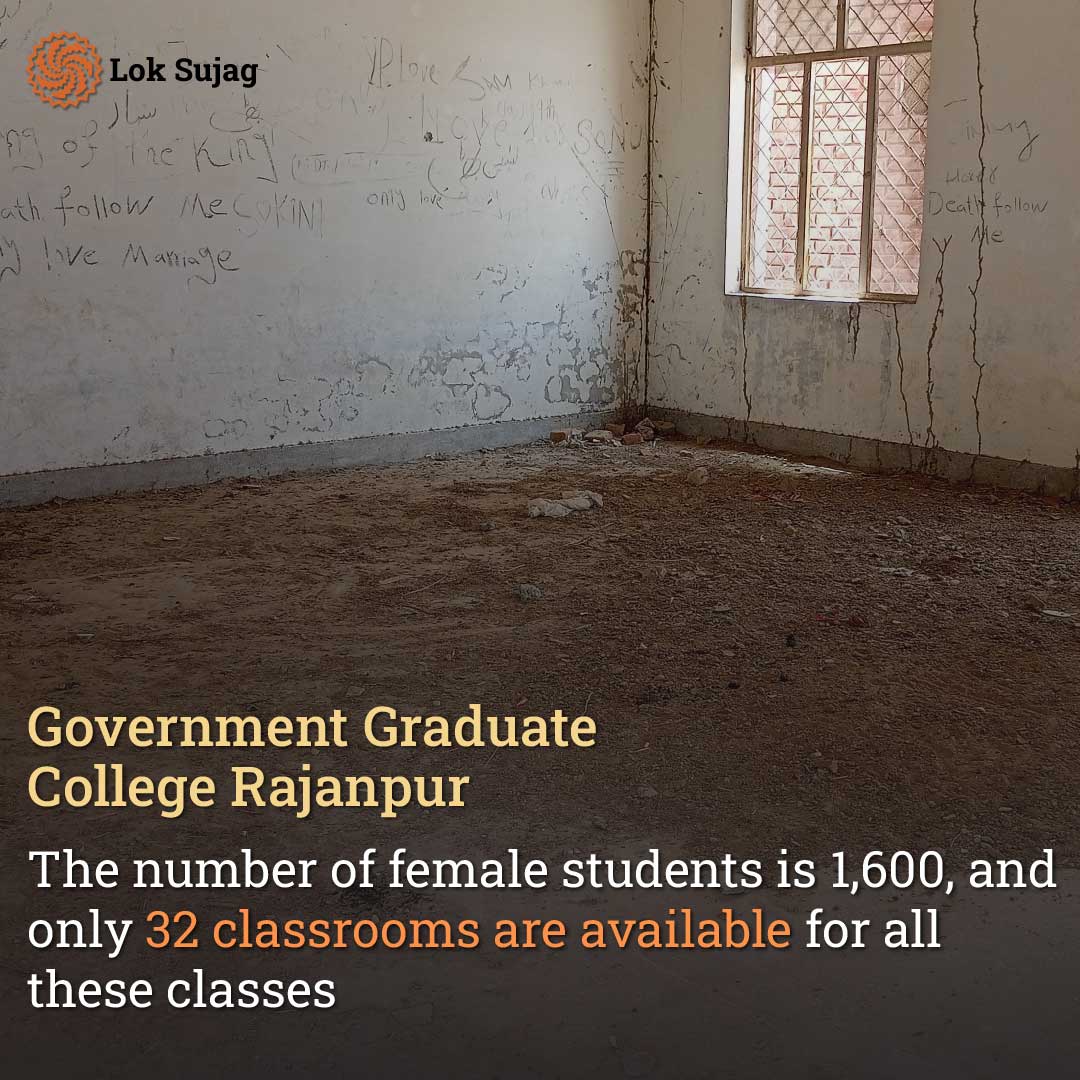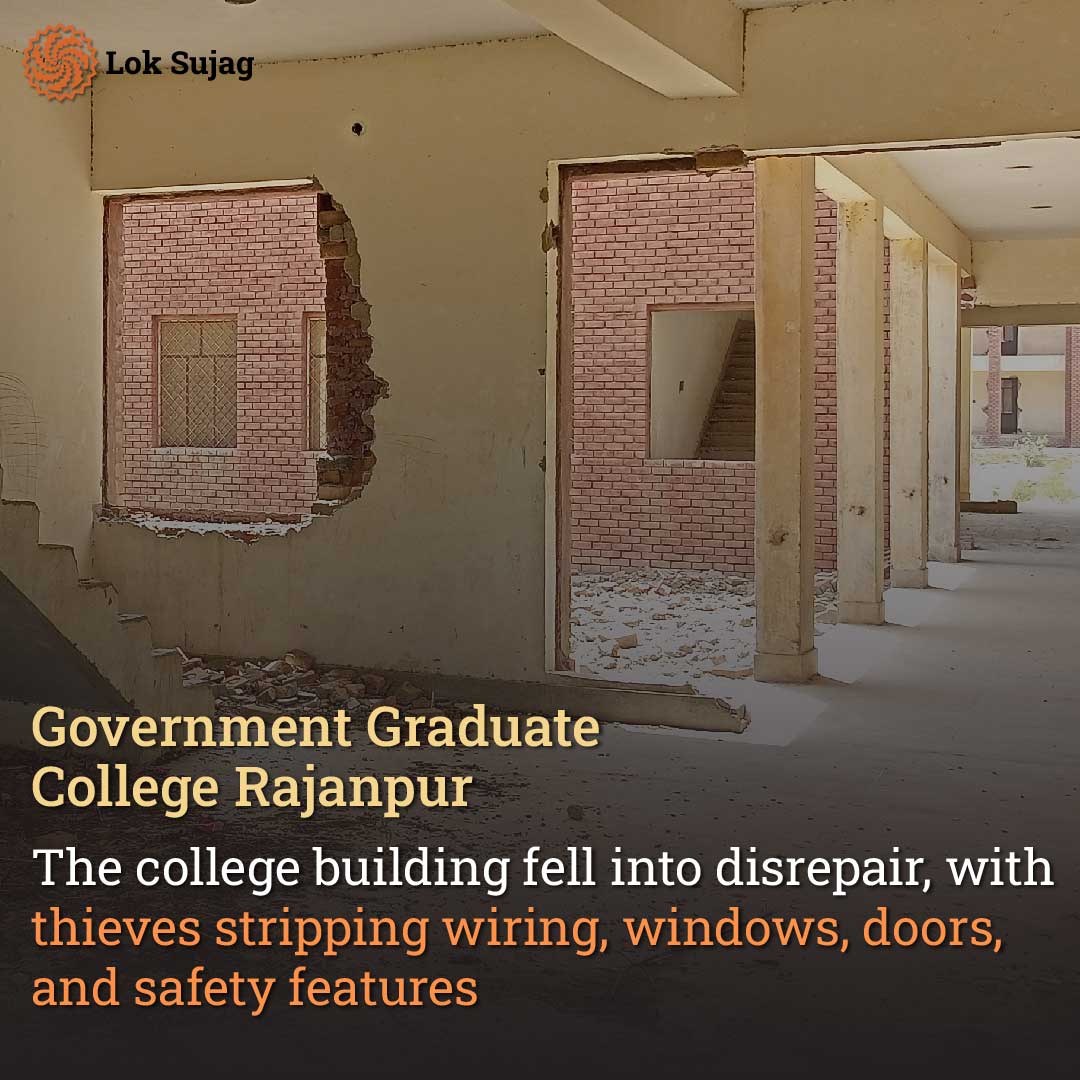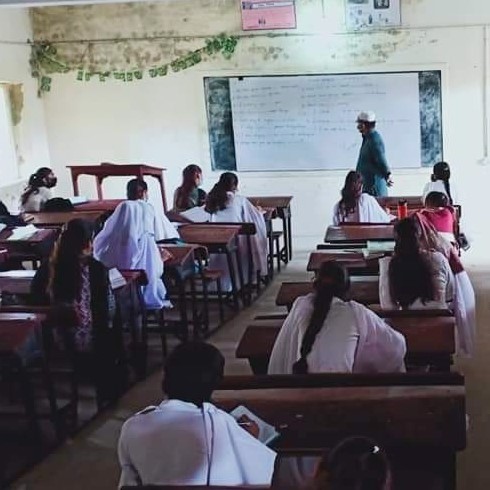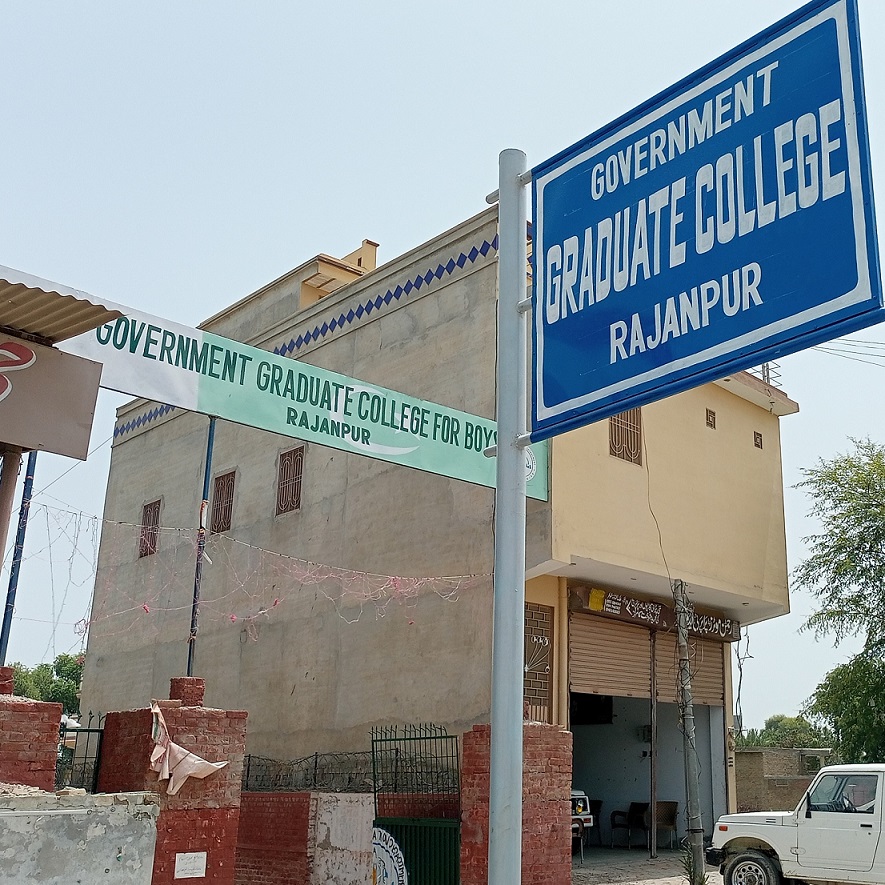Muhammad Khan, a twenty-one-year-old student at Government Graduate College Rajanpur, stands in the corridor alongside his entire BS English final year class, waiting for the lecture room to become available. The college is grappling with a severe shortage of classrooms. After each period, a considerable number of students fill the corridors. When one class is in session, another is left with no option but to wait.
Originally from Qasimpur, a village northeast of Rajanpur city, he commutes 21 kilometres daily via buses and ching chi rickshaws to attend college.
He explains that if a professor extends one class’s time, it often results in losing another class’s period.
This issue isn’t limited to the BS English final-year students; it affects all classes in the college.

According to the college’s records, the institution hosts 3,600 male and female students. There are 2,447 students across seven programs: BS English, Islam, Botany, Chemistry, IT, Economics, and Urdu. Additionally, 1,153 students are enrolled in FA/FSC and ICS. The college has 1,600 female students and only 32 classrooms available to accommodate all these classes.
In 2004, Punjab Chief Minister Pervez Elahi announced the upgrade of Government Degree College Rajanpur, a longstanding demand of the people in this underserved district. Following this announcement, the Provincial Construction Department initiated the feasibility study for the Post Graduate College building. The construction cost was estimated at Rs 334 million, a sum released in the subsequent budget. The land of the Degree College was chosen for the post-graduate block.

The original college building was constructed in 1972 for the inter-college. At that time, the government allotted an area of 455 kanals to the college. However, this land was divided by a railway line. The old building stands 98 kanals west of the railway line along the Indus Highway, while an additional 357 kanals lie vacant to the east of the railway line.
Three blocks were constructed for MA English, Urdu, and Islamiat, completed in 2008. Despite the passage of 15 years, classes never commenced due to inadequate supervision and maintenance. The building fell into disrepair, with thieves stripping wiring, windows, doors, and safety features. Even bathroom fixtures and electrical boards were stolen. Now, only the bricks and the roof remain, with shepherds using the building to shelter their sheep at night.

Although the building was finished in 2008, there was no electricity or water supply, and the surrounding grounds remained unpaved. The contractor and building department attempted to hand over the building to the college, but the college department refused.
Former Principal Muhammad Ashraf Qamar, the contractor, and the then SDO Building have since passed away. The Provincial Building Department holds the College Department accountable for the building’s condition.
Fayyaz Ahmed, SDO Building in Rajanpur, contends that the contractor completed the work, but WAPDA didn’t install the transformer. Nearby residents opposed the construction of walls that would obstruct their shortcut to the city. In 2010, flood victims who were housed in the building also caused damage.
According to Fayyaz Ahmed, the problem arose due to the College Department’s taking over of the MA Block building. Despite several attempts by his department to hand over the building, they were unsuccessful.

Fayyaz Ahmed explains that former Principal Muhammad Ashraf Qamar insisted the building was constructed under the provincial department’s supervision. He wanted the educational blocks to be completed and handed over to the college. However, challenges persisted in transferring ownership.
“Our office was in Dera Ghazi Khan. Officers had to come from there. We tried and even transferred one block to the college, but we couldn’t establish the building in Abad,” says Professor Dr Rab Nawaz Monis, who currently serves as the Principal of the Graduate College.
“The three MA blocks were constructed across the railway line from the existing college. An underpass or overhead bridge was required to reach them, but this never happened. The distance is approximately two to three hundred yards.”
Also Read

In Tharparkar, shortage of teaching staff hinders girls’ pre-medical education
He highlights that students must travel through the city’s bustling Watang Road to access the MA blocks. This 2.5-kilometer journey sometimes consumes considerable time.
Professor Rab Nawaz explains that the contractor and building department wanted the college to assume responsibility for the incomplete building. However, the building lacked essential amenities such as tables, chairs, electricity, and water for students and staff.
He reveals that one block, in relatively better condition, was handed over to the college in 2014 with the promise of electricity and water. Unfortunately, this promise remains unfulfilled, preventing classes from commencing.
The principal states that although the MA blocks were constructed, not even one watchman was appointed.
“The Boys Degree College was upgraded in March 2012, introducing four-year BS programs. However, we continue to operate in the building constructed for the inter-college 51 years ago.”
Published on 26 Aug 2023




















